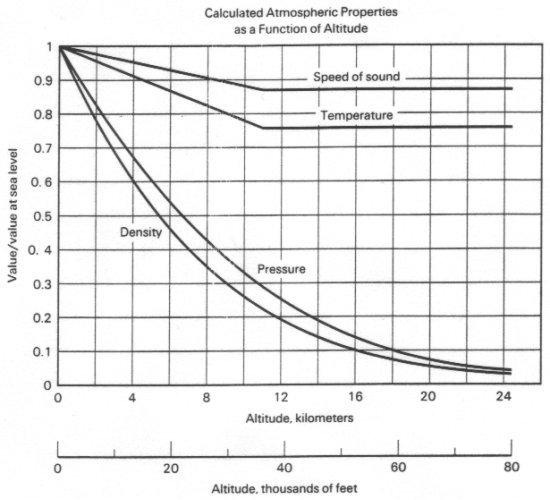|
||||||||||
|
|
||||||||||
|
||||||||||
|
|
||||||||||

This pressure was chosen for two reasons. First, the skin of the aircraft is designed to maintain its shape given the difference in pressure internal and external to the cabin. Aircraft manufacturers want to keep that difference as small as possible because it reduces the amount of structure needed to maintain the integrity of the aircraft's shape. The less structure required, the lighter and less expensive the plane will be.
Ideally, the internal and external pressures would always be equal to minimize the structural weight. However, the pressure cannot be too low or passengers could suffer from altitude sickness or pass out from oxygen deprivation. Most cases of altitude sickness occur at altitudes greater than 10,000 ft (3,050 m) and oxygen deprivation is typically not a concern below 14,000 ft (4,265 m).
The altitude of 8,000 ft was chosen as a tradeoff to satisfy these two requirements. The pressure at this altitude
is low enough that it significantly reduces the amount of structure needed to maintain the plane's shape yet high
enough that it prevents altitude sickness among the passengers. The pressure on a specific aircraft may vary as
different manufacturers offer different environmental systems aboard their planes. In general, most airlines
maintain an internal pressure comparable to that found at 6,000 to 8,000 ft (1,830 to 2,440 m). The pressure will
obviously increase at lower altitudes to equalize with the external pressure encountered at takeoff and landing.
- answer by Jeff Scott, 12 December 2004
Related Topics:
Read More Articles:


|
Aircraft | Design | Ask Us | Shop | Search |

|
|
| About Us | Contact Us | Copyright © 1997- | |||
|
|
|||